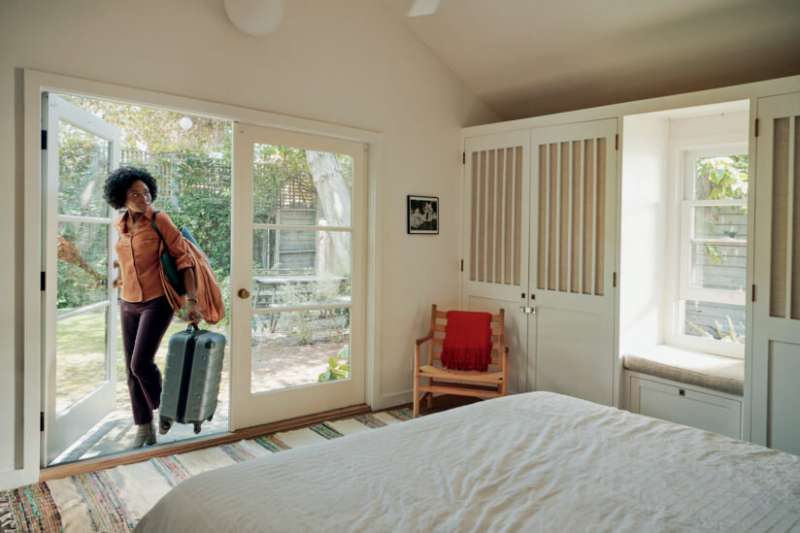How much does Airbnb really affect rents and housing prices?

It's no longer surprising to hear that Airbnb is taking long-term rentals off the market, but USC researchers are finding there's more to the story. Not only is Airbnb impacting long-term housing stock negatively, it's actually increasing rents and housing prices.
Davide Proserpio, assistant professor of marketing at the USC Marshall School of Business, is researching Airbnb's impact on cities. In a recently revised working paper, he and his colleagues showed the impact of Airbnb on the housing and rental markets. Using public Airbnb information and Zillow ZIP code and U.S. Census Bureau data, they were able to look at the company's effects more closely while controlling for things like gentrification and economic trends.
The percentage increase in rent and housing prices might sound small at first: A 1 percent increase in Airbnb listings led to a 0.018 percent increase in rental rates and 0.026 percent increase in housing prices. But consider that the median year-on-year growth rate in Airbnb listings was roughly 28 percent across ZIP codes in the paper's data.
"This is not so small if compared with the year-over-year rent and price growth," Prosperio said—about 3.2 percent and 5.7 percent respectively.
Using their data and estimates, they calculate a year-over-year Airbnb contribution to rent and price growth equal to 0.59 percent and 0.82 percent, respectively. "Suppose house prices go up 6 percent; Airbnb is probably causing 0.8 of that 6 percent," he said.
Overall, Airbnb probably contributes about one-fifth of the average annual increase in U.S. rents and about one-seventh of the average annual increases in U.S. housing prices, he told the Harvard Business Review.
Dowell Myers, a professor at the USC Price School of Public Policy, thinks it's possible the working paper underestimates Airbnb's impact.
"The impact of moving a whole unit from long-term occupancy to short term is equivalent to a demolition," he said. "You just subtracted a housing unit from the rental stock."
How L.A. wants Airbnb to benefit rent and communities
Proserpio noted one way Airbnb could mitigate that: the owner-occupier model. The owner-occupier is an Airbnb host who rents out a portion of their primary house—such as a room—but does not rent out the whole building or unit.
The city of Los Angeles has recently passed regulations cracking down on short-term rentals like Airbnb and is hoping more Angelenos use it to share space in their home.
Some of the rules include requiring that the host live in the residence for six months a year, imposing a 120-day cap and insisting that renters have landlord approval.
The regulations were aimed at balancing homeowners who are renting out spare space to pay the bills with the real estate investors and landlords who are converting homes and buildings into hotel-like stays, Los Angeles City Councilman Mike Bonin told Curbed.
Proserpio agreed that, through approaches like the owner-occupier model, there are benefits to Airbnb. It's not all negative.
"Some Airbnbs are in locations where there are no hotels, and this has the potential to favor the economy of these areas," Proserpio said. "Restaurants that were insulated from tourists before can now benefit from Airbnb travelers. All these things need to be taken into account to make policies that work for everyone."
L.A."s housing issues: much larger than Airbnb
Myers said it's important to keep in mind that the real issue in Los Angeles is the lack of housing stock. In cities like Chicago with softer housing markets, Airbnb might not be making a significant dent in long-term rental availability.
Los Angeles County is short 320,000 housing units, he said, and half of that shortage is put on people under age 35—many of whom are living with roommates and parents much longer than generations prior.
"In these emergency conditions, you can't afford to lose any more [housing stock]," he added. "We can't afford to give up a single unit."
It's not that Airbnb causes the conditions but it does aggravate them, he said. If rent costs continue to hike and stock doesn't steadily increase, density will—whether we build or not.
"If people want to continue to live in Los Angeles, they'll double up," said Larry Harris, a USC Marshall professor who served as chief economist of the Securities and Exchange Commission from 2002 to 2004. Just as we're seeing now, more adults will be sharing space, he said, perhaps living with family or other couples.
Harris thinks policies along the lines of L.A."s new regulations could help curb these impacts, such as passing zoning regulations that allow greater density along transit corridors, allowing more unrelated people to live together and modifying Proposition 13 to incentivize older couples to downsize.
"You have to have more houses," he said. "As long as people don't want houses built in their neighborhood or changes in zoning that would increase density, there's always going to be a shortage."
And if it weren't for Airbnb, people would likely be staying in hotels, Harris noted. Perhaps, with these new regulations, hospitality should take note.
"The bottom line is there is clearly demand for places to sleep," he said. "What we need to do is figure out how to satisfy those demands."
More information: Kyle Barron et al. The Sharing Economy and Housing Affordability: Evidence from Airbnb, SSRN Electronic Journal (2018). DOI: 10.2139/ssrn.3006832
Provided by University of Southern California



















